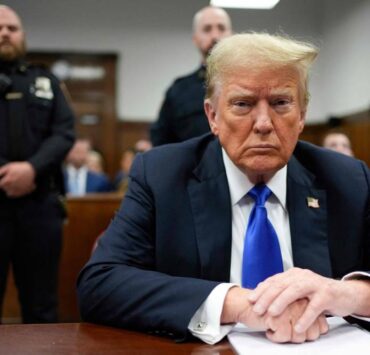Bracing for a contingency

At about this time five years ago, the country’s medical community raised alarm bells about COVID-19 and called on the government to restrict entry to the Philippines of people from countries that had already been infected by the virus.
Early on, it was widely believed (and later proven) that the virus came from Wuhan, China.
Not wanting to embarrass China to whom then President Rodrigo Duterte had repeatedly expressed fealty, his administration held back from issuing any statements about its potential spread to the country.
It was only on Jan. 30, 2020 when the health authorities confirmed the first case of COVID-19, which was traced to Chinese tourists who visited a popular beach resort to celebrate the Lunar New Year.
In an effort to contain the virus, the government imposed draconian measures that virtually paralyzed commercial activities all over the country.
As a result, millions of Filipinos lost their jobs and, in the process, rendered destitute their families. Five years after, the adverse effects of that economic stagnation are still being felt.
It was reported recently that the World Health Organization (WHO) is tracking the outbreak of Human Metapneumovirus (HMPV), a respiratory disease that causes coughs, fever and blocked nasal passages, in China (again!).
Although considered as less serious compared to COVID-19, it’s still a cause for concern because of possible serious health complications.
Like in COVID-19, the Chinese government had denied the spread of the HMPV in its territory and stonewalled on the efforts of the WHO to prevent a repeat of the COVID-19 pandemic.
For now, it seems there is scant reason for the public to be worried about the HMPV becoming an epidemic, or, worse, a pandemic. But considering the reported mutation of viruses and the speed by which they can spread around the world, there is no room for complacency.
Some international health experts had expression apprehension that the next global emergency is not a question of if, but when. And when that happens, its death toll may exceed the more than seven million all over the world who are believed to have succumbed to COVID-19.
Learning from the COVID-19 experience, a widespread medical emergency may have to be included in the list of contingencies that the country’s business leaders should prepare for.
Although the government may be looked to for guidance in managing that problem, the business community would have to fend for itself in the long run because, as the COVID-19 scenario had shown, government action is influenced by politics and the personal interests of the officials tasked with handling crises that involve the allocation of public funds.
During the COVID-19 pandemic, businesses resorted to work-from-home (WFH) arrangements and shifting work assignments to maintain their operation.
With the return to regular or normal operations, some businesses have realized that certain areas of their operation can remain viable or profitable through a WFH system or by outsourcing them to entities that have the expertise in, for example, accounting, billing and collection.
Drawing from past experiences, the same procedures, with probably some adjustments to reflect changes in the business environment, would have to be availed of in case another medical emergency hits the country.
Note, however, that the task of preparing for that contingency is not solely management’s responsibility or obligation. The employees have to share in meeting the challenges of an unexpected disruption of normal business operations.
If, for example, a change in work schedules would result in the reduction of the employee’s take-home pay or commission, that should not be a reason to complain of work discrimination.
In the same token, in case the circumstances call for the suspension of the grant of certain benefits to the staff due to lack of funds, the union should not cry “unfair labor practice” and engage in coercive activities to force the issue.
It should be borne in mind that capital and labor are in the same boat in natural and man-made calamities.


















